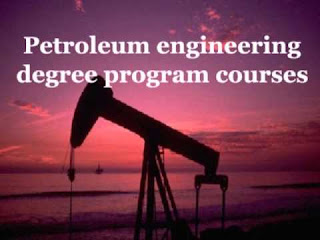Petroleum is used everywhere form cars, to cooking, plastics, pharmaceuticals, cosmetics, beauty products etc. petroleum courses in islamabad is an important field of engineering and it basically deals with extraction of oil and natural gas from the surface of the earth for the benefit of the human civilization. Today oil and natural gas determines the world economy.
A petroleum engineer's salary is governed by various factors like experience, designation, specialization field and the company which has hired him/her. Generally your starting salary begins from $83,000 per annum and the upper limit can be anything depending on your ability and experience. If you are in industry mostly doing office work then your salary can be anything around $82,000 to $1, 30,000 but the ones doing on-site jobs and involved in extraction process can have salaries up to $1, 50,000 per annum. The degree that you have earned from petroleum courses in islamabad and the years of experience that you have also determine your salary.
Due to the excessive use of petroleum and considering that petroleum is an exhaustible energy source. Petroleum engineers are looking at alternative and renewable sources of energy and at the same time looking for new oil field and using them in the best optimum way. Engineers who work at refineries or on-site jobs might have to stay away from their family at remote refineries which can also be in the middle of the ocean. Some might have to stay away from their family and this is paid to them in the form of some remuneration and perks. Basically the salary can vary on the basis of your geographical location as well as the company you are employed in.
After acquiring education at the college the next job is to undergo petroleum courses in Rawalpindi and attain complete knowledge and experience for optimum fuel extraction. After acquiring experience an engineer can start a private consultancy and offer their service. Petroleum engineering is a growing field and there is a great demand for engineers. The engineers who are flexible about their work location can surely find more opportunities overseas. An engineer can find better opportunities in the near future.











